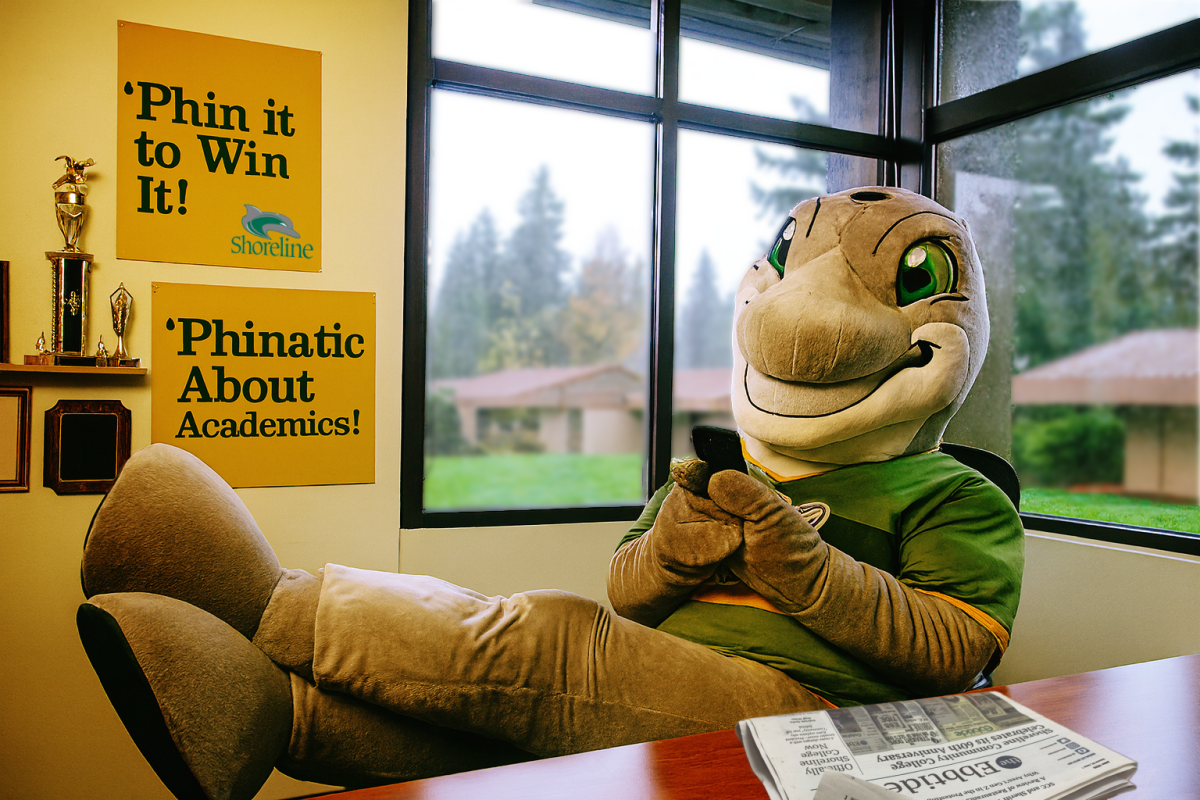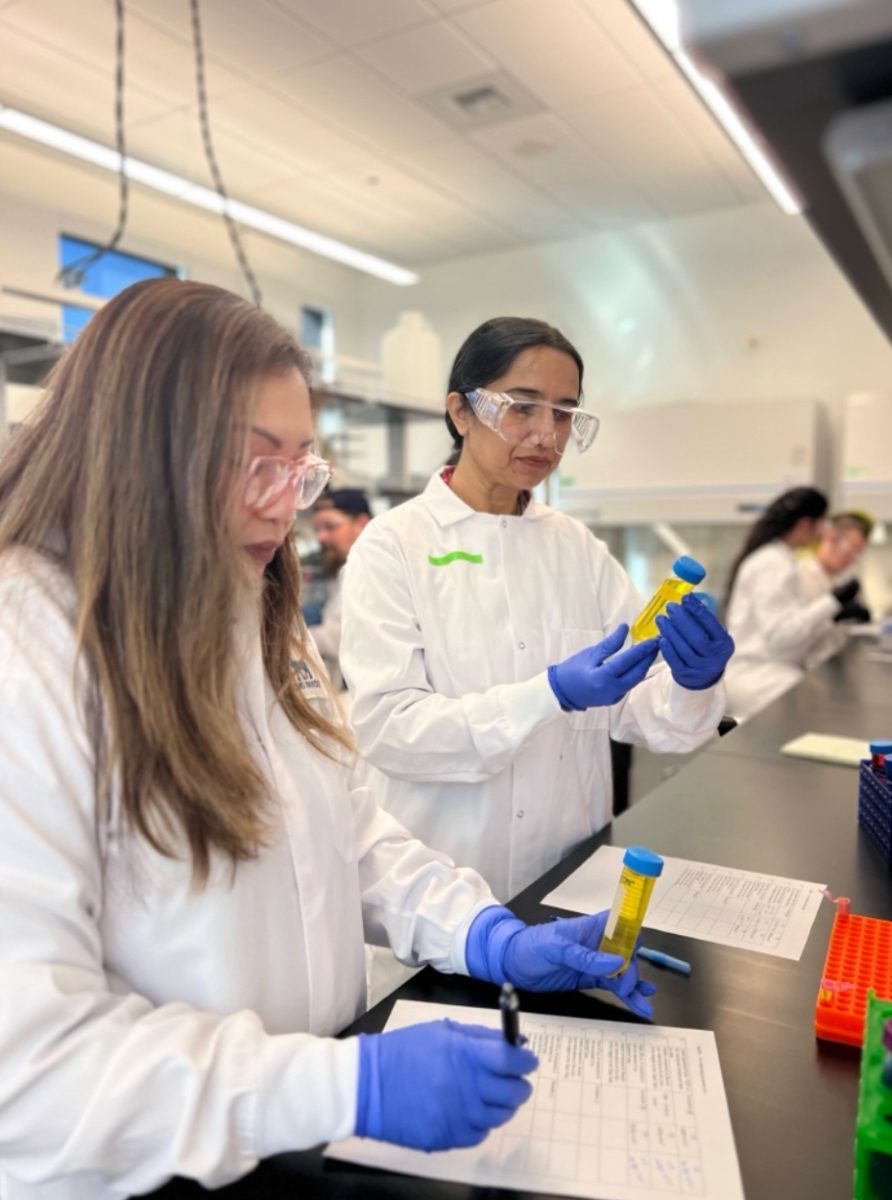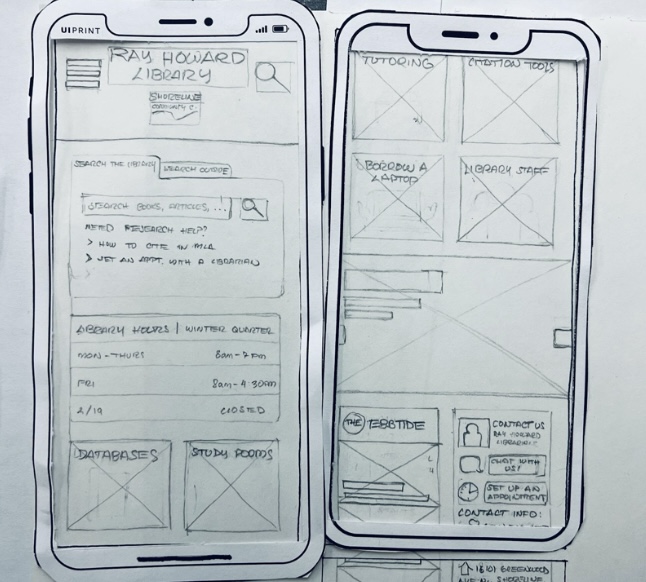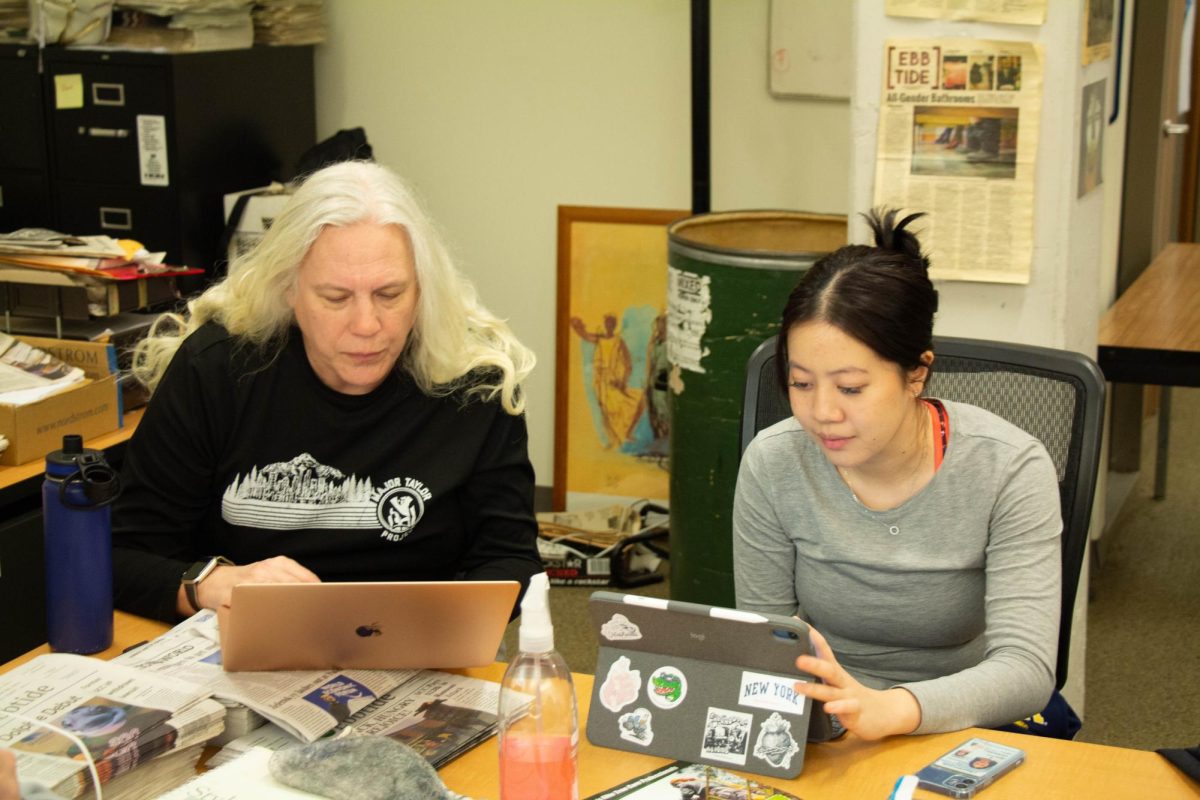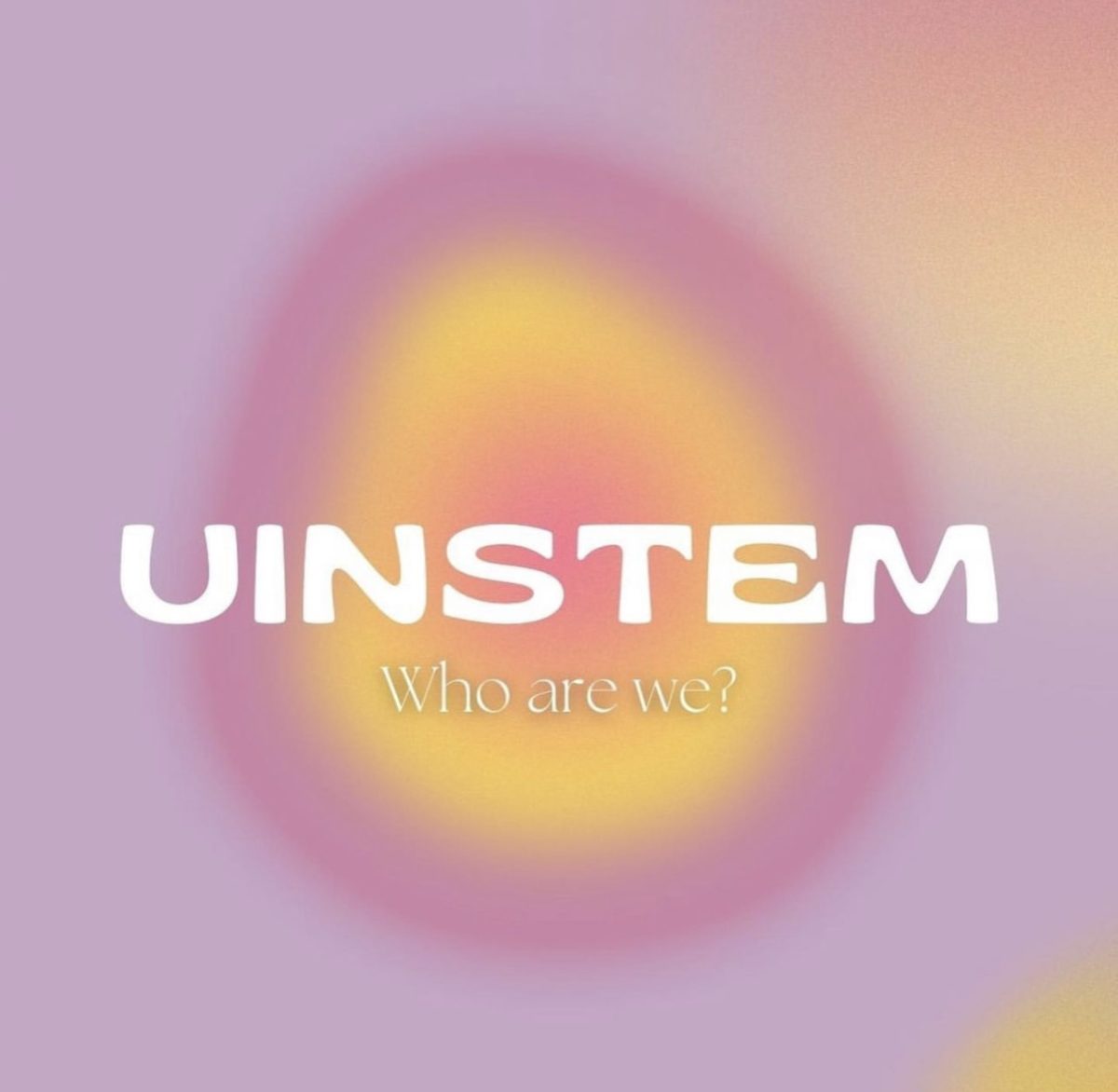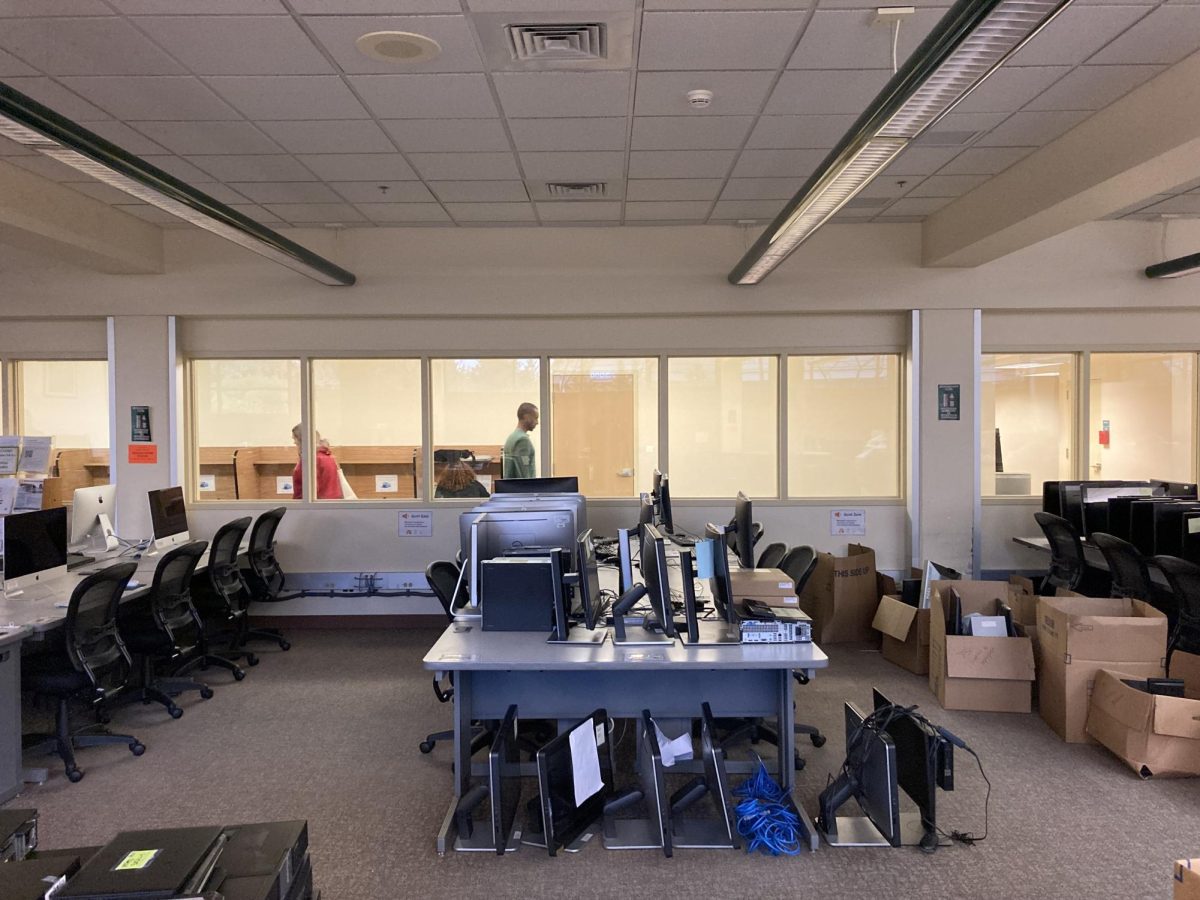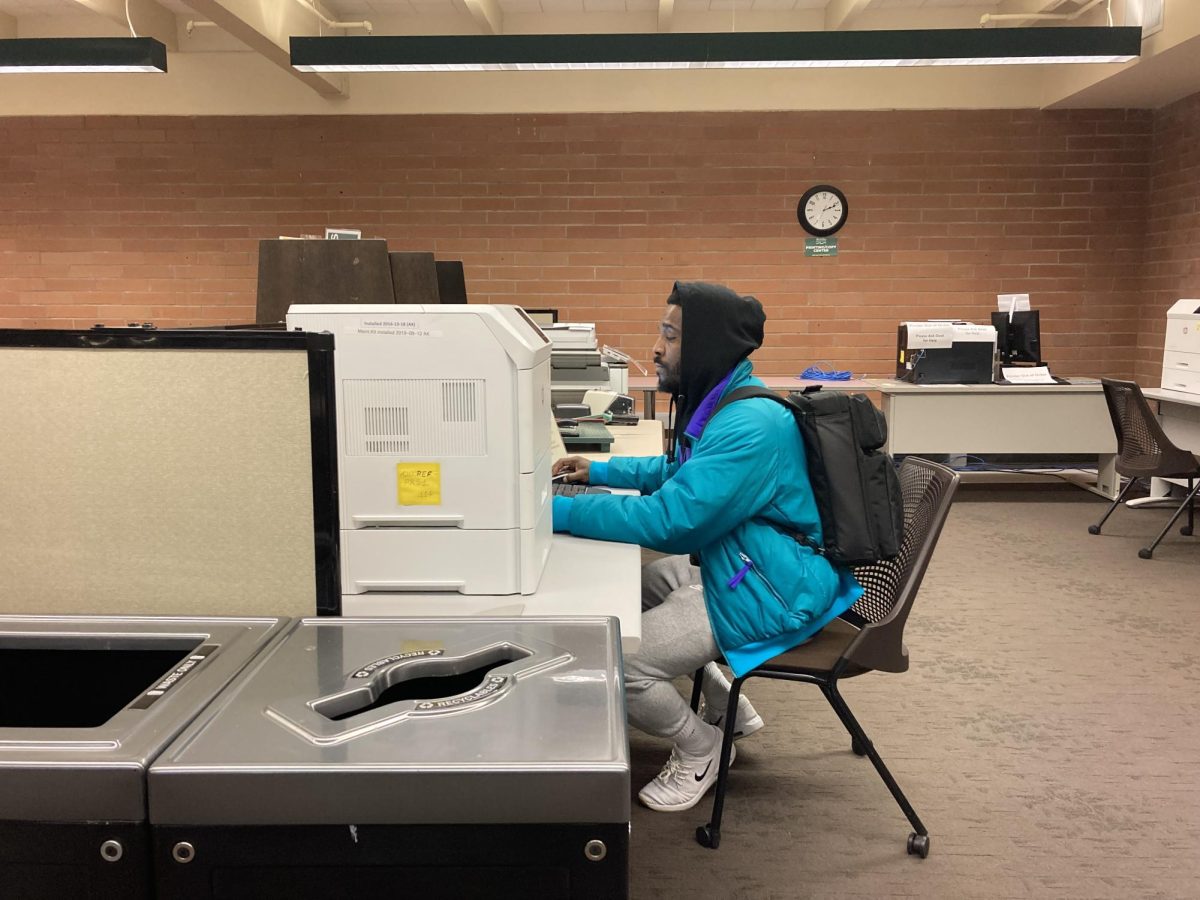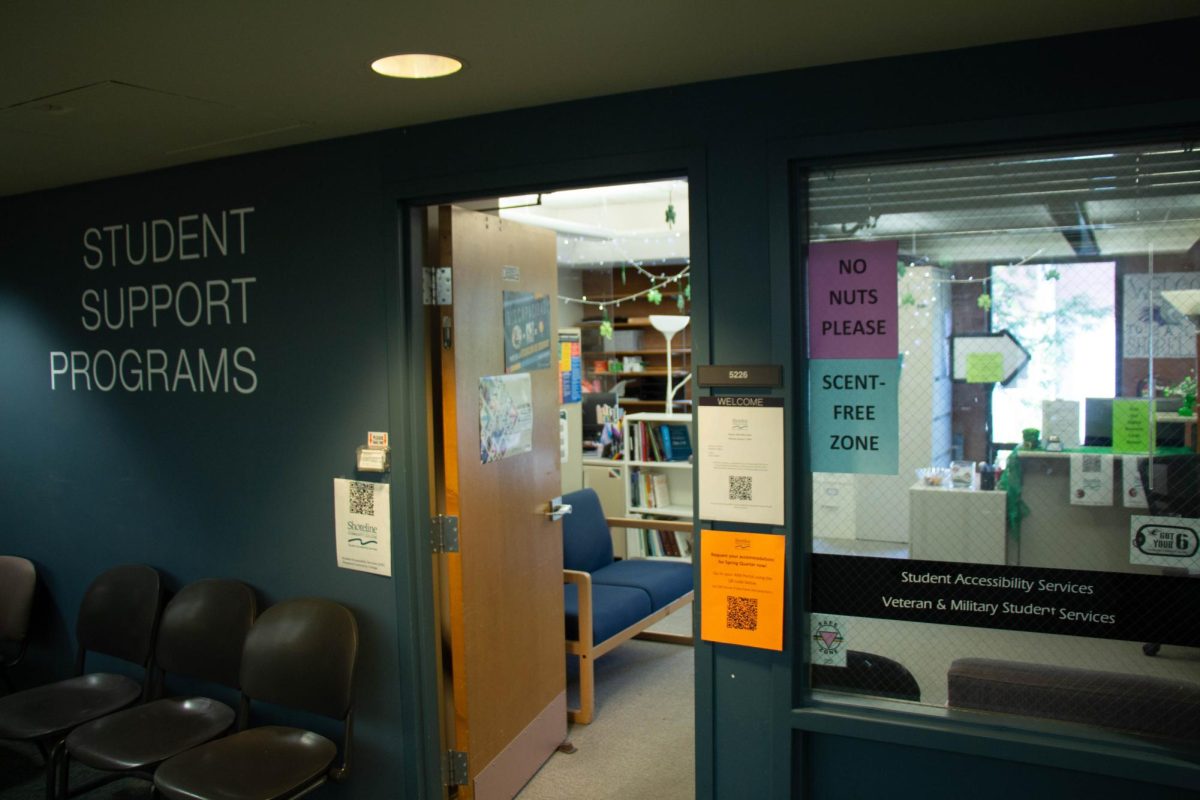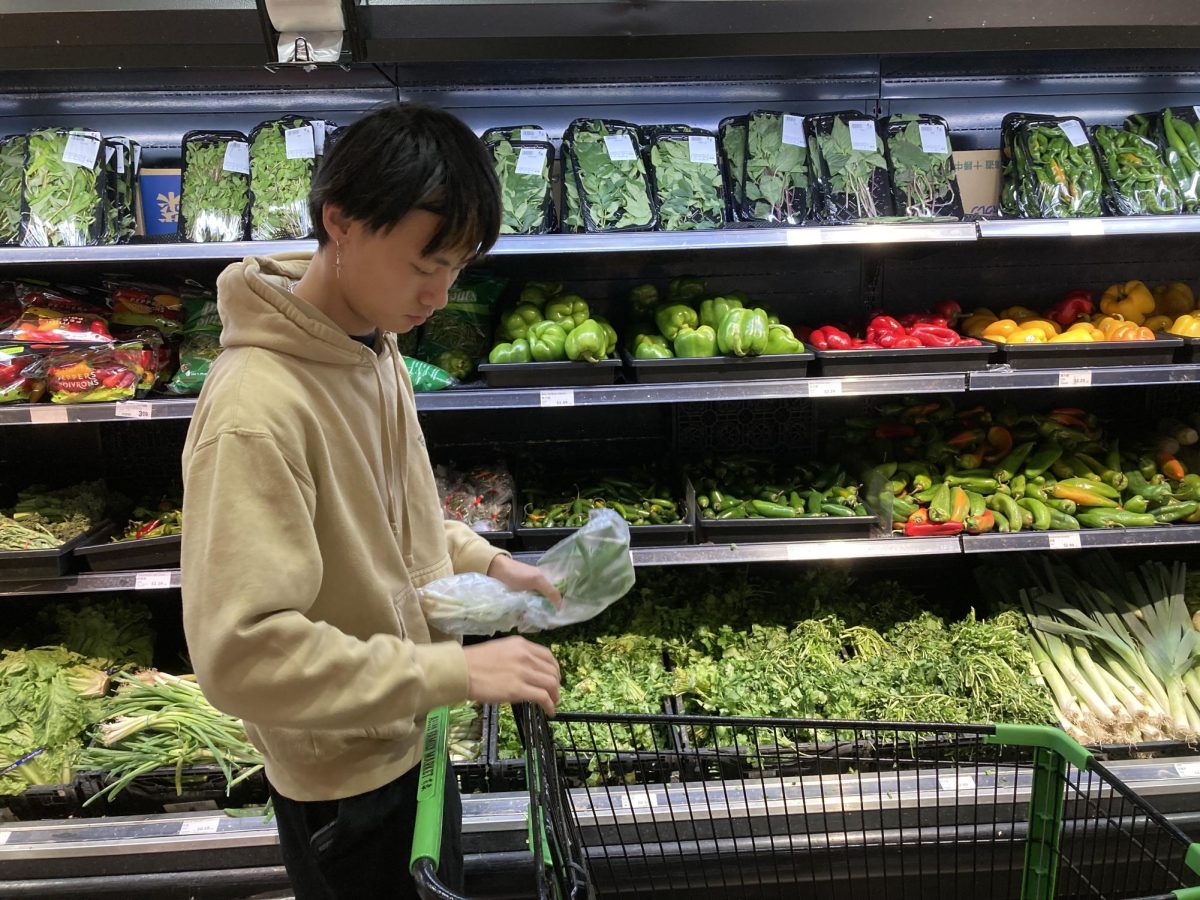“This is Dolphie, from Shoreline Community College. I’m here to support you,” read the emoji-laden SMS text message students received on their mobile phones on the first day of class this fall quarter.
“Is that a scam, or is that real?” asked Sirine Habachi, a third-year student in Shoreline’s pre-nursing program.
During the second week of classes, Dolphie chirped, “How are you feeling about the start of the term?” At key points like this during the quarter, Dolphie takes “temperature checks,” asking students to pick from a list of answers prepared by Jill Marquis and Derek Levy, who lead Shoreline’s Student Support & Success team.
With college budgets shrinking at the state and federal levels, international student enrollment down by as much as 20%, and staffing limited, administrators are looking for new ways to keep student engagement from dropping even further.
New Phone, Who Dis?
Paddy Andresen, a Head Start student, described the text message from Dolphie as “weird—outta nowhere.”
In the past, Dolphie, the college’s aquatic mascot, only asked for “phinatic” cheering for sports teams. Behind the scenes, however, Dolphie got a new digital voice this summer.
EdSights, an educational tech company founded in 2017 by two sisters, Claudia and Carolina Recchi, both first-generation college students, provides the AI that powers Dolphie. The company describes its platform as “grounded in research and powered by AI,” aiming to help colleges achieve “higher yield, stronger student connections, and improved team efficiency,” according to its website.
Drawing on their experiences as international students who moved to the U.S. from Italy, the sisters created EdSights to address challenges they once faced.
Marquis said, “Once we started working with them, my faith in this company grew and grew because many of the people we worked with there had a lot of experience in higher education before they worked for this company, which is cool.”
Humans In The Loop
Lianne Almughirah, Director of International Admissions and Student Services, emphasized the importance of interacting with Dolphie. “It’s really important—it’s measuring student life here,” she said. “It’s not a scam. It’s here to benefit you.”
Skepticism about AI is common, but it has consequences. For some students, especially those in tech programs, dismissive terms like “tech bro” can be alienating. Such stereotypes can discourage engagement with campus resources—human or digital—and suppress meaningful dialogue about ethics and technology.
As discussed in classes like Communication for Social Change, intersectional analysis offers tools to navigate these conversations. While skepticism about Big Tech can be warranted, stereotyping erases lived experiences and silences complex identities.
EdSights shares little about the AI model behind Dolphie—known as EdSights Retain—which is protected by trade secret laws. The company describes its product as using an “evidence-based framework” to check in with students every 7–10 days. These check-ins are anonymized and compiled into reports for department heads.
When asked about student data safety, Marquis clarified that Dolphie “does not scrape the internet” for information. Instead, Dolphie pulls from an internal database of verified answers maintained by Marquis and Levy. “Dolphie does not just randomly pull from Shoreline’s website, which is really great because not all of our website is as up to date as we would like it to be,” Marquis said.
Turn On, Tune In, (or) Opt Out
Since the release of ChatGPT in 2022, chatbots have become part of many students’ daily routines. Some use them to cheat; others use them to brainstorm or as conversation partners when professors aren’t available. Like calculators or computers, they’re tools with their own advantages and drawbacks.
Privacy concerns remain valid. The Family Educational Rights and Privacy Act (FERPA) protects students’ rights to data privacy. Similarly, the General Data Protection Regulation (GDPR)—a European standard many U.S. tech companies follow—ensures stronger international protections. Together, FERPA and GDPR safeguard student data, especially for those under 18.
Students who prefer not to participate can simply reply “STOP” to Dolphie’s messages. Doing so halts all further check-ins and assistance offers. Still, Shoreline administrators encourage students to give Dolphie a chance.
“We cannot be available for students 24/7. But Dolphie is available,” said Marquis. While not a perfect solution, Dolphie acts as a bridge across the turbulent waters of limited staffing—offering a simple way to connect students with support resources.
This is Not a Drill.
Dolphie’s main purpose is to connect students with resources, but the chatbot also flags potential emergencies. According to Marquis, “We might get a violence alert, a mental health alert, a Title IX alert, or a dropout alert.” Those alerts are escalated directly to Levy or Marquis for human follow-up.
“I’ll do the research to figure out how to get their name to somebody they’ve been working with—someone who can be a real human touchpoint,” Marquis said.
She also encourages feedback: “If students get an answer from Dolphie that they later find out was totally wrong, I hope they’ll email me.” That feedback helps improve Dolphie’s database so, “The next time Dolphie gets that question, we can actually get it right.”
Like all college resources, it’s up to students to decide how much support they want to receive—and how much responsibility to take on themselves. As one professor recently reminded their class, “We’re all adults now.”


